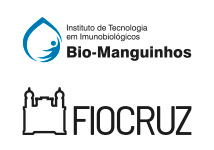
The history of Bio-Manguinhos is closely linked to that of the Oswaldo Cruz Foundation, as it is one of its technical-scientific units. Fiocruz was born as Instituto Soroterápico Federal, in 1900, changing its name to Instituto Oswaldo Cruz later, before receiving its current name. Located in Manguinhos, Rio de Janeiro, it meets national demands in the field of public health.
Bio-Manguinhos has great responsibility in this objective, since it is the unit dedicated to the promotion, development and production of immunobiologicals of interest to the Brazilian population. In the links on the right, you can learn more about Bio's history. Remarkable facts such as the discovery of vaccines, the construction of an industrial complex, the signing of major cooperation agreements, among others, built the trajectory of the unit.


